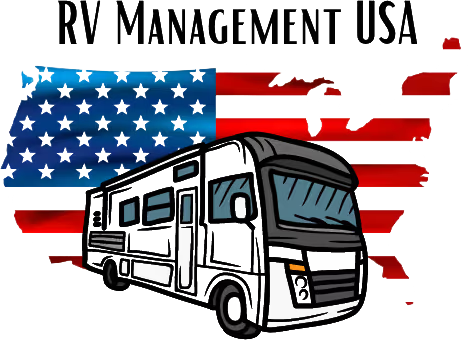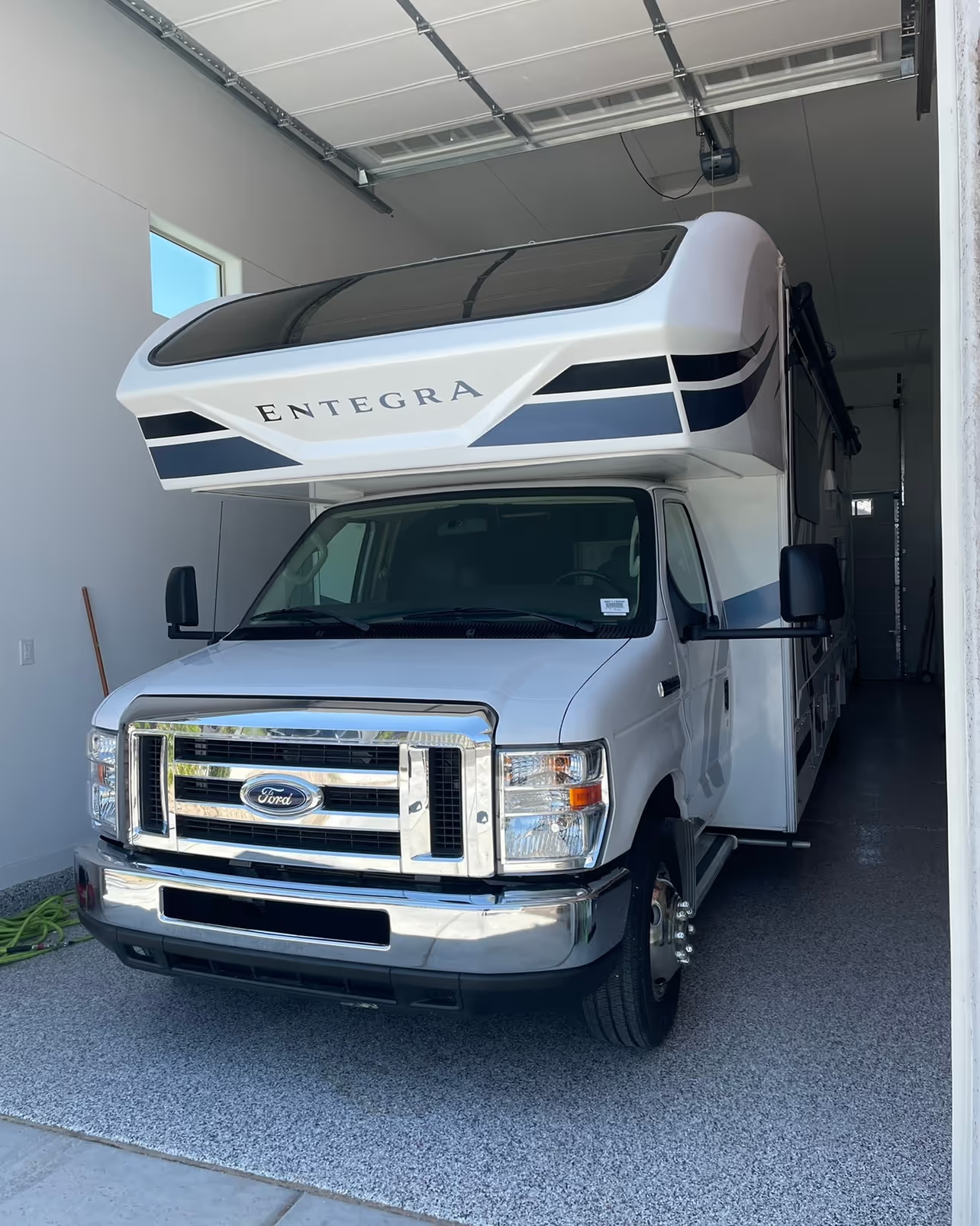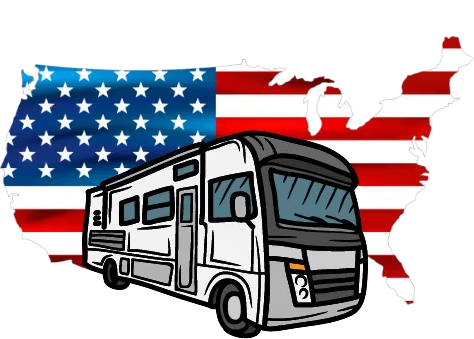You’ve had some unforgettable memories in your RV. The road trips, the spontaneous getaways, the lakeside mornings with coffee in hand. But now? Maybe the kids are older, you’re traveling less, or the RV is just sitting in storage collecting dust—and depreciation.
So the question naturally comes up: What should I do with my RV?
You could sell it and cash out. You could try renting it yourself. Or you could explore a hands-off program like RV Management USA that does the heavy lifting for you.
But how do you know which option is right?
This guide breaks it all down. We’ll walk you through the pros, cons, and real-world trade-offs of RV rental management vs. renting vs. selling—so you can make the smartest decision for your lifestyle, finances, and peace of mind.
Table of Contents
- The Decision Point: Why RV Owners Reassess
- Option 1: Selling Your RV
- Option 2: DIY Renting
- Option 3: RV Rental Management Programs
- Comparing the Financials
- Comparing the Time Commitment
- Long-Term Value and Depreciation
- Final Thoughts: What’s Best for You?
The Decision Point: Why RV Owners Reassess

Most RV owners don’t wake up one day and say, “I think I’ll get rid of the RV.” It usually starts with a realization:
- You’re using it less than you expected
- It’s costing more in storage, insurance, or upkeep than it’s worth
- You’re tired of dealing with maintenance
- You could use the money for something else
- You want a newer model later on
Whatever your reason, the bottom line is this: your RV is an asset. It’s either making you money—or costing you money. So what’s the best path forward?
Option 1: Selling Your RV
Selling is simple and final. You hand over the title, get paid (hopefully in full), and walk away with no ongoing obligations. For many owners, especially those moving on from RV life entirely, it feels clean.
Pros of selling:
- Immediate cash payout
- No more maintenance, insurance, or storage costs
- No need to worry about future damage or depreciation
Cons of selling:
- You lock in a loss on depreciation
- Market timing affects sale value. It might not be a seller's market.
- You miss out on potential passive income
- If you change your mind, it’s gone for good
Most RVs lose 20–30% of their value in the first year, and up to 50% by year five. If yours is a few years old, you’re likely looking at a significantly lower resale price—often below what you owe, if financed.
So before you sell, it’s worth asking: could your RV earn more than it’s worth right now?
Option 2: DIY Renting
This is the “side hustle” option. You list the RV yourself on a platform like Outdoorsy or RVezy, respond to guest inquiries, manage bookings, clean the unit, and coordinate hand-offs.
Pros of DIY renting:
- Full control over pricing, availability, and guest screening
- Higher cut of each rental (no management fees)
- Flexible schedule—you decide when it’s rented or blocked off
Cons of DIY renting:
- It’s a job—you handle all communication, cleanings, and logistics. Tons of time and stress.
- Requires learning how to list, price, and insure your RV properly
- Renter mistakes and damage are your problem to solve
- Peak seasons may conflict with your own vacation plans
Some owners enjoy the hands-on nature. Others find it quickly becomes overwhelming—especially when trying to juggle multiple bookings, maintenance, and real life.
The question isn’t just “how much can I make?” It’s “how much time and energy am I willing to give?”
Option 3: RV Rental Management Programs

This is the “set it and forget it” model. You hand your RV off to a professional manager—like RV Management USA—and they take care of everything: listing, renter screening, communication, cleanings, maintenance, and insurance.
Pros of RV rental management:
- Hands-free income with zero guest contact
- Optimized listings, dynamic pricing, and higher utilization
- Monthly payouts and tax documentation
- Protection through commercial insurance and renter vetting
- Your RV is professionally maintained, cleaned, and stored
Cons of RV rental management:
- You’ll share rental revenue (typically 50-50% split with manager)
- Limited access to the RV during peak rental seasons
- Not every RV qualifies—most programs want newer, well-maintained units
If you want the income without the hassle, this is often the best balance of profit and peace of mind. It also opens up depreciation tax advantages you can’t access if the RV just sits unused or is sold outright.
Comparing the Financials
So let’s talk numbers. How much could each option realistically bring in?
Selling:
- One-time payout based on market depreciation
- May be $30,000–$70,000 depending on make, model, and year
- No future income
DIY Renting:
- Average $10,000–$25,000 per year gross
- Requires time commitment: 5–10+ hours/week during the season
- All revenue goes to you, but so do all responsibilities
Rental Management:
- Average $8000–$19,000 per year net (after manager’s cut)
- 100% hands-free: no time commitment
- Eligible for business tax deductions, depreciation, and write-offs
- Some owners earn enough to cover loan payments entirely
The question becomes: do you want a one-time payout, or recurring income that can offset ownership costs and build over time?
Comparing the Time Commitment
Time is money—and some RV owners simply don’t want another job. Here’s how the three options stack up:

For busy professionals, snowbirds, or anyone juggling family life, rental management offers the income potential of DIY renting without the extra work.
Long-Term Value and Depreciation
There’s another angle worth considering: your RV is going to depreciate whether you sell it or not. The question is whether it’s earning income along the way.
Selling means you accept depreciation as a sunk cost.
Renting—either DIY or managed—lets you turn that depreciation into deductible losses and ongoing cash flow.
If your RV earns $15,000 a year through rental income, plus another $5,000–$10,000 in tax deductions from depreciation and business write-offs, that’s a better financial outcome than selling—especially if you still owe on the loan.
Rental management programs make this kind of passive income realistic even if you don’t have time to manage guests or listings yourself.
Final Thoughts: What’s Best for You?

When deciding between RV rental management vs. renting vs. selling, it really comes down to your priorities:
- Want immediate cash and a clean break? Selling may be right.
- Have time to hustle and handle everything yourself? DIY renting could work.
- Want passive income without the stress? Rental management is likely your best bet.
At RV Management USA, we believe RVs were built to move—not sit. That’s why we’ve created a full-service rental management program that helps RV owners turn their RVs into income-generating assets—without doing the dirty work.
Whether your goal is to offset your loan, fund your next vacation, or simply make sure your RV stays clean, maintained, and profitable, we’re here to help you get more from your RV.
Don’t just sell it. Don’t let it sit idle. Let it work for you. Send us a message today.
– RVM Team













